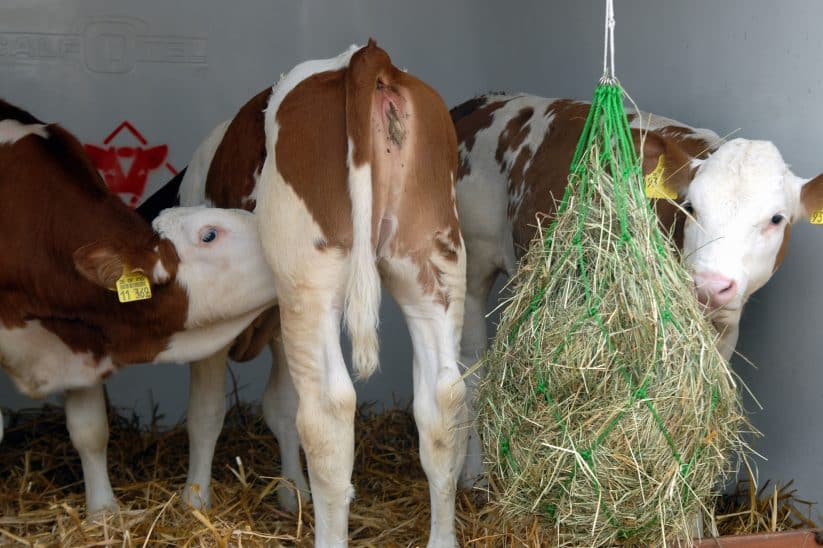16/01/2024
Tips against vacuuming
Source: Landwirtschaftskammer OÖ
Calves on organic farms must be kept in groups for at least one week after birth. One problem that often arises is mutual suckling.

Essentially, sucking is an innate behavior in all mammals that is crucial for the survival of their young. Source: Landpixel
Optimize husbandry and feeding
There are several measures that can help prevent or at least reduce cross-sucking. First and foremost, it is necessary to create an optimal housing environment for the calves. Housing them in an open-fronted barn or an igloo, or providing them with an outdoor area, provides the calves with a greater range of environmental stimuli. Various structural elements and care facilities (e.g., hay racks, scratching brushes) in the pen also help prevent boredom for the calves. Next, it is necessary to improve watering and feeding management.
